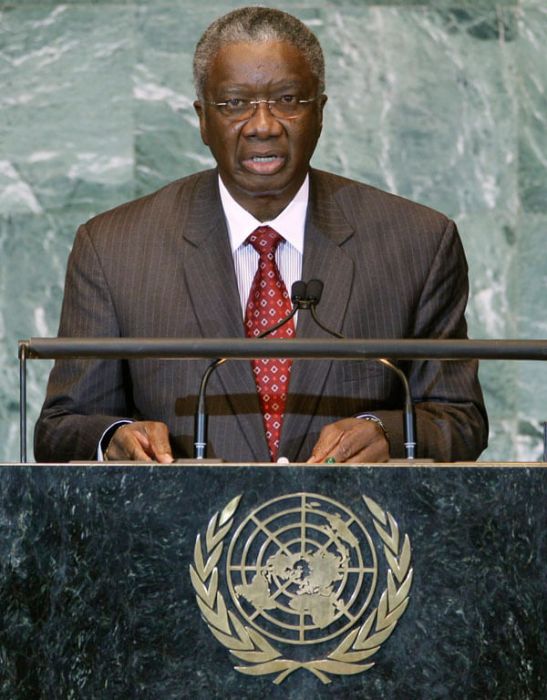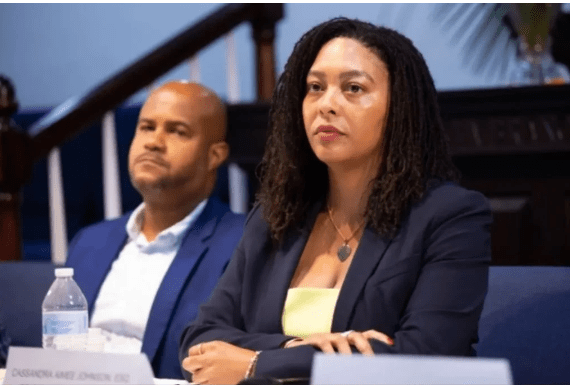Caribbean
Four Caribbean countries, St. Lucia, Belize, Trinidad and Tobago and Haiti have been identified as countries outside the United States that companies will move to in five to l0 years.
That’s according to readers of Site Selection Magazine, an influential publication that highlights corporate real estate strategy and area of economic development.
Local consultants and experts in foreign direct investment from around the world were asked where they would consider locating their investment in the next 10 years and why. Senior Editor of Site Selection Patty Rasmussen posed the question.
St. Lucia, Belize, Trinidad and Tobago and Haiti were among 13 countries identified as choice locations in the Central / South America and Caribbean.
Among the attributes identified for the future, “Locations of the Future” survey respondents highlighted a large population with a burgeoning middle-class; politically and economic stability; and industrious; well educated workforce; and quality infrastructure as some of the incentives to investing in one regional location over another.
Bahamas
Murders increased by 25 percent in the Bahamas between Jan. 1 and July 11, 2015 compared to the same period in 2014.
There were 64 murders recorded during this period last year compared to 80 murders recorded this year, an average of one murder every 2.4 days.
Figures showed that there were 10 killings in January, 15 in February, 12 in March, 11 in April, 15 in May, 12 in June and five in this month so far.
Last weekend there were three murders in the country. Two of those killings took place in separate incidents.
Minister of National Security Dr. Bernard Nottage recently announced that the Inter-American Development Bank (IDB) approved a $20 million loan to the government to help fund the fight against crime.
He said access to the funds is the “most important event” in crime-fighting in recent times.
Nottage said together with the IDB, the government came up with several crime-fighting strategies that include targeting at-risk youth, strengthening the justice system and improving reintegration programs.
Last month, Minister of State for National Security Keith Bell claimed that despite the high murder count, the government was winning the war on crime.
Barbados
The Barbados economy expanded by less than one percent during the first half of this year mainly due to an encouraging tourism sector, the Central Bank of Barbados (CBB) announced recently.
It said that growth of about one percent is now expected this year, rising to a range of two to 2.5 percent for the next three years.
“Tourism and construction should be the main drivers. Recent efforts to enhance the tourism product and enrich the visitor experience are beginning to the effect,” the CBB said.
It noted that public sector investment projects already underway and projected over the next three years total Bds$567 million.
Private investment in hotels and tourism-related projects over the same period, are expected to be about two billion dollars and the CBB said that the growth rate, if installation can be ramped up significantly.
The bank said that during the first six months of this year, the economy grew by an estimated 0.5 percent.
The CBB said that tourism value-added rose by three percent for the first half of 2015, although visitors stay was shorter on average.
Cayman Islands
Former Cayman football boss, Jeffrey Webb, 50, has agreed to be extradited to the U.S., according to international media reports. Several leading news agencies have reported that Webb, who is currently being detained in a Swiss jail, is willing to go the United States and answer the allegations against him in the massive FIFA racketeering probe.
Webb, the former president of the Central and North American Football Federation (CONCACAF) and FIFA vice-president, was arrested in Zurich on May 27 along with six other FIFA executives who took bribes and kickbacks amounting to over $150 million in relation to sports tournament and marketing rights from various sports companies.
Webb appears to be the first of the men arrested in Switzerland to agree to go to the United States and answer the charges.
The Federal Office of Justice (FOJ) in Switzerland has confirmed that one of the seven men detained by the authorities there agreed to the extradition at a recent Zurich court but the office has not named the individual. The FOJ approved the extradition immediately and as a result Webb could be handed over to American law enforcement authorities within 10 days.
The Cayman Islands had also started an extradition request to the Swiss authorities following charges laid against Webb recently in an unrelated local corruption case. Webb has been charged alongside Canover Watson and Miriam Rodrigues in relation to an $11 million contract for a card payment system at the hospital known as CarePay.
Cuba
There has been a spike in tourism in Cuba as more than two million visitors have already visited the country from January to July 10, 2015.
This is according to a release by the ministry of tourism the two million mark was reached in 39 days fewer than in 2014, a spike in arrivals in the present year that translates in 16 percent growth, thanks to the encouraging performance of source markets such as Canada, Germany, the United States, the United Kingdom, Italy and Argentina.
According to the release, the results show that Cuba as a destination has garnered international recognition as a safe, peaceful and healthy country to visit.
In 2014, Cuba achieved its goal of receiving over three million tourists in a year for the first time in its history, a feat that seem to be easy to match and surpass in 2015.
Guyana
The newly-installed Guyana government led by President David Granger is pushing to ensure it delivers on the promises made in its 100-day plan.
He told reporters that despite encountering such findings as a bankrupt PetroCaribe fund and a Consolidated Fund in heavy overdraft, the new administration is “working to ensure the things we promised (within 100 days) are delivered”.
“When we went into office, there were some unexpected discoveries, example the state of the buildings, the state of vehicles, the state of finance, but we are still working to ensure that the promises which we made in our legislative agenda, the promises which we made to the people of Guyana are delivered,” the president said.
The new government has until August 16 to deliver on the promises of its manifesto plan; reduce the Berbice Bridge toll, increase the salaries of Government workers, implement a phased reduction of Value Added Tax (VAT) and completely remove VAT from food and other essential items, increase old age pension and waive duties on fuel, tools and small mining equipment brought by identifiable holders of small concessions.
Plans to reduce the President’s pension and other benefits and liberalize the telecommunication sector are also in process.
Jamaica
Jamaica’s top police chief said there has been a “troubling” and “unacceptable” increase in killings, with 602 homicides so far for this year on the Caribbean island that has long grappled with high rates of violent crime.”
There have been reductions in every other major crime category in 2015, but homicides are on the rise, according to Police Commissioner Carl Williams.
Half of the slayings are rooted in gang conflicts and 80 percent are done with guns, according to police statistics.
“Our communities continue to be ravaged by the senseless spilling of bold,” Williams said.
Last year, Jamaica saw double-digits decrease in every crime category, including a 16 percent drop in homicides.
The 1,005 slayings recorded in 2014 was the lowest annual total in over a decade on the island of 2.7 million people.
It’s a long way from Minister of National Security Peter Bunting’s goal of reducing crime to “First World levels” by 2017, when he hopes Jamaica will have a maximum of about 320 murders.
Still, last year’s reduction in killings was touted by Bunting as “a breakthrough year in the figth against crime.”
Williams has introduced a campaign aimed at intercepting the flow of smuggled firearms coming into Jamaica and seizing guns from criminals. He said Jamaicans will soon be offered rewards for providing information leading to the seizure of illegal weapons.
Suriname
On Aug. 25, Brazilian airline giant, GOL will begin twice weekly flights to Paramaribo, the capital of the Dutch-speaking Suriname. On the other hand, reliable sources reveal that Caribbean Airlines Limited (CAL) is exiting the Suriname market.
In a press release, GOL states, “we have interest in the resumption and closer relations with Suriname, with regard to the mobilization of people, both for leisure and for business, with attentive vision to receptive tourism, in addition to the importance of the transport of loads in relation to importation and exportation of these goods in and out of the country, through other states.”
GOL and AZUL Airlines are also exploiting the Guyana market, which is also home to a large Brazilian community.
The new route aims to meet the needs of 15,000 Brazilians who live in Suriname by allowing them to connect with the various cities operated by GOL in South America, the Caribbean and United States, and with the Dutch partner KLM, which operates four times a week between Amsterdam and Paramaribo according to the Brazilian carrier.
Due to stiff competition from Suriname Airways and Insel of Curacao, the Port of Spain-Paramaribo route has become unprofitable for CAL.
Trinidad
Non-nationals of Trinidad and Tobago will not be able to receive free HIV/AIDS medical care when the government starts the registration process for the much-anticipated National Health Care Card, which will be available to only citizens and legal residents of T&T.
Illegal residents will also have to foot their own health bills for health care.
The card, which was promised by Prime Minister Kamla Persad-Bissessar during her 2013 local government campaign, is designed to provide faster and more efficient access to state health services and eliminate fraud and wastage within the Chronic Diseases Assistance Program (CDAP).
Prime Minister Persad-Bissessar said that nationals of T&T are only granted free HIV/AIDS medical care abroad in emergency situation and there needs to be a balance in terms of how foreigners are treated in the local health sector.
“We have been told that non-nationals are accessing free HIV care in Trinidad and Tobago.”
Health Minister Dr. Fuad Khan blamed the shortage of medical supplies on immigrants.
— compiled by Azad Ali






















